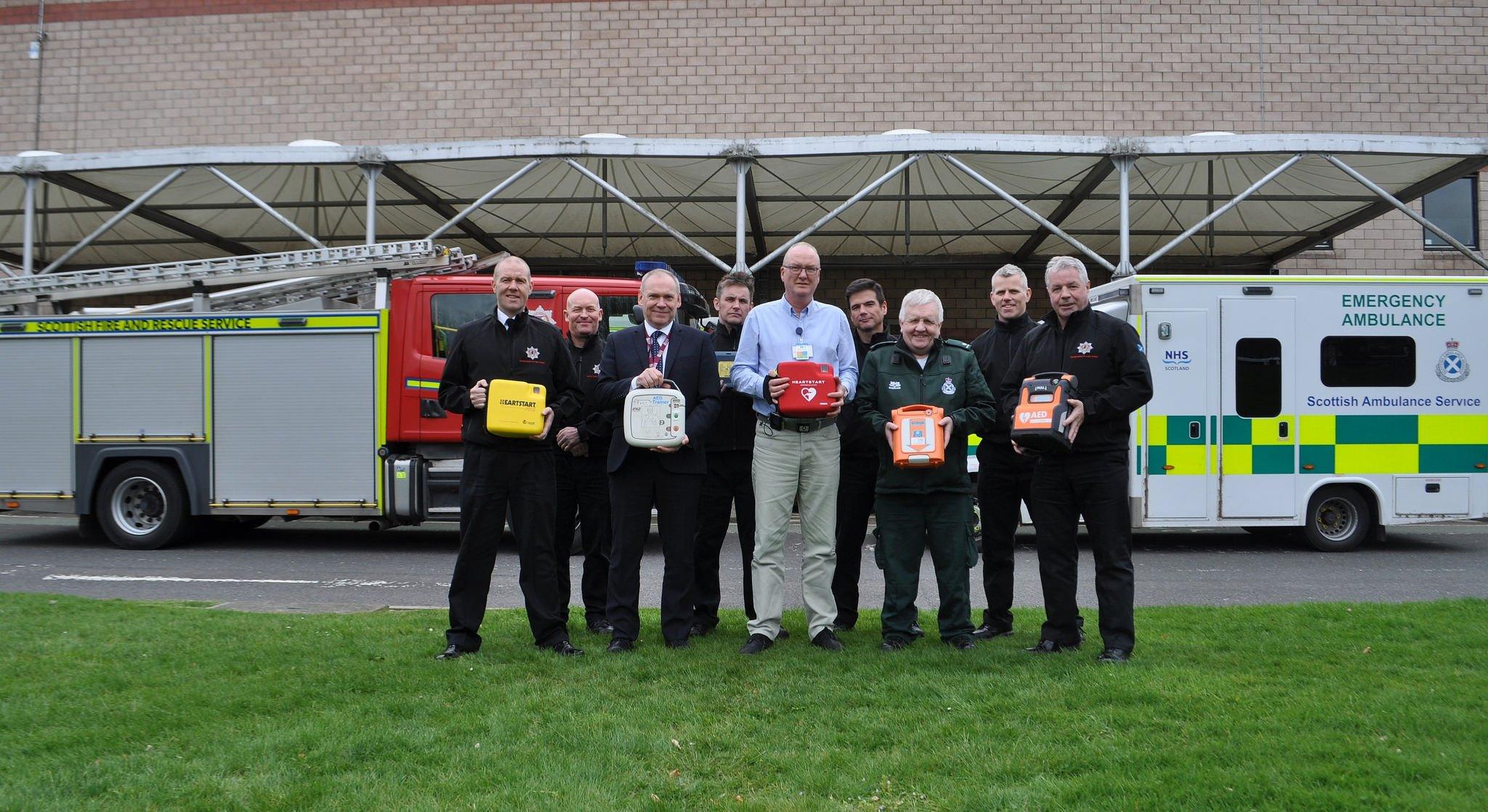Scottish Borders cardiac arrest survival rate rises
- Published

Anyone responsible for a defibrillator is being asked to register it
Resuscitation training has been credited with improving the out-of-hospital cardiac arrest survival rate in the Scottish Borders.
Before March 2015, the figure for the region stood at 4% - below the Scottish average of 7% to 10%.
It has now risen to 29% with the national figure also up to 16%.
The training of 10,000 people in Cardio-Pulmonary Resuscitation (CPR) and increased defibrillator numbers are said to have helped tackle the issue.
The Scottish Ambulance Service, NHS Borders, Scottish Fire and Rescue Service, Scottish Borders Council and local charities Avril's Trust, Scottish HART and Kelso Heartbeat have been working together to address the problem.
Their work has been supported by the Scottish government's Out-of-Hospital Cardiac Arrest: A Strategy for Scotland, which was launched in March 2015.
'Saving lives'
CPR training has taken place across the region, including pupils at various primary and secondary schools, community groups, sports clubs members and the general public.
The British Heart Foundation has also provided CPR training kits to all Scottish Fire and Rescue Service stations in the country for local communities who want to learn the life-saving skills.
In 2014 NHS Borders gifted 50 defibrillators to Scottish HART for use across the region as well as two defibrillators to Borders College who committed to provide their staff and students with CPR training.
The health board's resuscitation officer, Rod McIntosh, said: "Since then NHS Borders has continued to work closely with partner organisations to deliver training and raise awareness of defibrillators in the community.
"We are delighted to see that this collaborative working is delivering positive results and saving lives."
Murray McEwan, Scottish Ambulance Service's national community resilience manager, said that increasing the amount of public access defibrillators had enhanced the chances of survival for a patient suffering an out-of-hospital cardiac arrest.
Communities or groups considering buying an automated external defibrillator (AED) are being advised to check new guidance available online., external
Anyone responsible for an AED has been encouraged to register it with pad.scottishambulance.com, external and www.crowdsav.com, external.
'Extremely active'
"By registering a public access defibrillator, the Scottish Ambulance Service will look to provide life-saving instructions as well as advise members of the community on how to use the nearest available defibrillator," said Mr McEwan.
David Farries, local senior officer of Scottish Borders for the Scottish Fire and Rescue Service, said it was delighted to be involved.
"The SFRS is a key stakeholder in this strategy," he said.
"We are extremely active across the country, providing CPR instruction from all of our community fire stations and also providing an enhanced operational response to out-of-hospital cardiac arrests in support of the Scottish Ambulance Service in selected areas including the Borders."
Jim Fraser, SBC's emergency planning officer, said it had provided nearly £20,000 for defibrillators, cabinets and training to local communities and resilient communities groups.
"We are pleased to see this guidance published and would encourage those who already have public access defibrillators to register them with the Scottish Ambulance Service and CrowdSav," he said.
"Doing so could save a life."